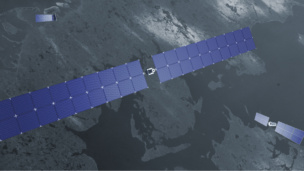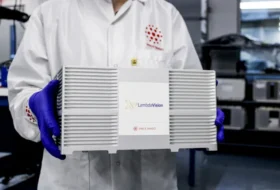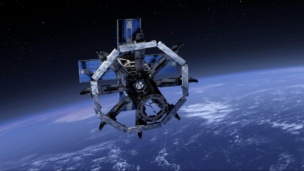SpiderOak demoed its OrbitSecure cybersecurity platform aboard the ISS last month, the company announced this morning, setting the stage for a future in which data can be securely shared in space by civil and defense customers.
The demo used an AWS Snowcone edge computing platform supplied by Axiom Space, and involved transmitting data back and forth from Earth using the ISS’ Tracking and Data Relay System (TDRS).
“The team’s successful demonstration of OrbitSecure technology is a significant step toward building secure, dynamic, and scalable space communications and data processing infrastructures,” Jason Aspiotis, director of in-space infrastructure and logistics at Axiom, said in a statement.
Living on the edge
SpiderOak’s OrbitSecure platform relies oncontainerized workloads, in which bits of code are bundled together with all the files they need to run independently of other blocks of information. This siloing of different applications makes for more efficient and secure data processing and transmission in orbit.
In June, SpiderOak demonstrated its OrbitSecure technology on a Ball Aerospace payload in LEO. The ISS demonstration marked a step up in the complexity of the operation, and further validated the software in space.
The big picture
Cybersecurity is top of mind for defense customers in particular, who may be staking lives on the safe and confidential transfer of data to and from space. In its $30B budget request for fiscal 2024, USSF earmarked $700M for cybersecurity.
Looking to the future, SpiderOak also aims to use its containerized infrastructure to lay the groundwork to build secure data centers in orbit to support the growing in-space economy and need for increased data storage and utilization in orbit.





